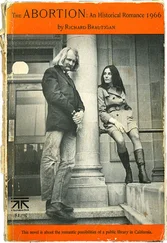Richard Dowling - The Weird Sisters - A Romance. Volume 1 of 3
Здесь есть возможность читать онлайн «Richard Dowling - The Weird Sisters - A Romance. Volume 1 of 3» — ознакомительный отрывок электронной книги совершенно бесплатно, а после прочтения отрывка купить полную версию. В некоторых случаях можно слушать аудио, скачать через торрент в формате fb2 и присутствует краткое содержание. Жанр: foreign_prose, на английском языке. Описание произведения, (предисловие) а так же отзывы посетителей доступны на портале библиотеки ЛибКат.
- Название:The Weird Sisters: A Romance. Volume 1 of 3
- Автор:
- Жанр:
- Год:неизвестен
- ISBN:нет данных
- Рейтинг книги:4 / 5. Голосов: 1
-
Избранное:Добавить в избранное
- Отзывы:
-
Ваша оценка:
- 80
- 1
- 2
- 3
- 4
- 5
The Weird Sisters: A Romance. Volume 1 of 3: краткое содержание, описание и аннотация
Предлагаем к чтению аннотацию, описание, краткое содержание или предисловие (зависит от того, что написал сам автор книги «The Weird Sisters: A Romance. Volume 1 of 3»). Если вы не нашли необходимую информацию о книге — напишите в комментариях, мы постараемся отыскать её.
The Weird Sisters: A Romance. Volume 1 of 3 — читать онлайн ознакомительный отрывок
Ниже представлен текст книги, разбитый по страницам. Система сохранения места последней прочитанной страницы, позволяет с удобством читать онлайн бесплатно книгу «The Weird Sisters: A Romance. Volume 1 of 3», без необходимости каждый раз заново искать на чём Вы остановились. Поставьте закладку, и сможете в любой момент перейти на страницу, на которой закончили чтение.
Интервал:
Закладка:
At night the darkness was thick and hot in these blind alleys and inexplorable aisles. When the foot was put down something slipped beneath it, a greasy branch, a viscous fruit, a reptile, or the fat stalk of some large-leafed ground-plant.
The trunks of the trees and the branches of the shrubs were damp with gelatinous dews. If there was a moon, something might always be seen sliding silently through the grass or leaves and pulpy roots.
Strange and depressing odours of decay came stealthily upon the sense now and then, and filled the mind with hints of unutterable fears. If in the branches above a sleeping bird chirped or fluttered, it seemed as though the last bird left was stealing away from the fearful place. The fat reptiles that glided and slipped in the ghostly moonlight were fleeing, and leaving you alone to behold some spectacle, encounter some fate, too repulsive for the contemplation of reason.
Within this belt of rank vegetation and oaks the Manor House stood. The house had a plain stone front with small narrow windows, three on each side of the main door. At the rear was a large paved courtyard, with a pump and horse-trough in the middle.
The chief building consisted of a ground-floor, on which were the reception-rooms; a first floor of bedrooms; and a second floor, the windows of which were dormar, intended for the servants of the establishment.
The walls of the house were of great thickness and strength. On the ground and first floors most of the doorways into the passages had double doors. Owing to the great thickness of the walls, and the double doors, and the massive floorings and partition walls, sounds, even the loudest, travelled with great difficulty through that house.
In front of the house stretched a broad gravelled drive, which narrowed into a gravelled road as it set off to the main road, a considerable distance farther on. This carriage-road wound in and out through the oaks of the Park. Between the gravelled open in front of the house and the trees stretched a narrow band of shaven grass. This narrow band of grass followed the carriage-road up to the lodge-gate.
Around the paved yard in the rear stood the coach-house, stables, kitchen, laundry, scullery, larder, and other offices, and still farther to the rear of the house, behind the yard, were the flower and kitchen gardens. To the rear of all, surrounding all, and binding all in like suffocating bondage, was the Park of gnarled oaks and rank lush undergrowth and slimy soil.
In looking at the house you were not conscious of anything uncanny or repulsive. At the left-hand end – that is, the end of the house nearest to Daneford – there rose a tower, mounting only one storey above the dormar floor.
Upon the top of this tower was a huge iron tank, corroded into a skeleton of its former self. Looking at that weather-battered and rusted tank, with the undergrowth in the Park behind you, the former resembled the decay of the indomitable natives of America, who perished slowly in opposing themselves to fate; the overripe prosperity of the latter looked like the destruction of the Romans, who ate and drank and slept their simplicity and their manhood away.
One peculiarity of this house was that no green plant or creeper could get a living out of its dry walls. Neither on the house nor on the tower had ever been seen one leaf native to the place. Here was another thing in strong contrast to the teeming vegetation environing this house.
It was not while looking at the Manor you felt its unpleasant influence. In sunshine nothing disturbed your peace while you contemplated its dry, cold front. But when you had gone away; when you were sitting in your own bright room; when you were walking along a lonely road; when you awoke in the middle of the night, and heard the torrents of the storm roar as they whirled round your window; then, if the thought of that house came up before your mind, you shrank back from its image as from an apparition of evil mission. In your mental vision the house itself seemed scared and afeared.
The intense green life that dwelt beneath those oaks stood out in startling contrast with the absolute nudity of those unapparelled stones. The house seemed to shrink instinctively from any contact with verdure, as though it felt assured of evil from moss or leaf or blade. It appeared to dread that the oaks would creep up on it and overwhelm it in their portentous shadows, beat it down with their giant arms.
That tower stood out in the imagination like an arm uplifted in appeal; that shattered tank became a tattered flag of distress. The windows looked like scared eyes, the broad doorway a mouth gaping with terror. The whole building quivered with human horror, was silent with frozen awe.
In the year 1856 Henry Walter Grey's father died, and the son became sole proprietor of the Daneford Bank. Up to that time the son had lived, with his wife, to whom he had then been married six years, in the Bank-house as manager under his father. There were only a few years' lease of his father's suburban residence, to run, and a likelihood arose that the landlord would not renew, so young Grey had to look out for a home, as he intended appointing a manager and living away from the office.
At that time the Manor House was in the market, and Mr. Grey bought it for, as he said, "a song, and a very poor song, too," considering the extent of the Park, the value of the timber, and the spacious old house. As a matter of fact, no one valued the dwelling at a penny beyond what the sale of its stones would bring; for the impression of the seller was that, owing to its uncanny aspect and bad name, no one would think of buying it to live in.
All Daneford was taken by surprise when it heard that young Grey, Wat Grey, Wat had bought the fearful Manor House in which no family had lived for generations, and from which even the furniture and servants had been long since withdrawn. Did he mean to take it down, build a new house, and effect a wholesome clearance of those odious groves?
No, he had answered, with a light laugh, he harboured no intention of knocking down the old house to please the neighbours; of course he was going to repair the house, and when it was fully restored he would ask his friends to come and try if beef and mutton tasted worse, or wine was less cheering, under that roof because nervous people had been pleased to frighten themselves into fits over the Park and the Manor House.
In a year the house had been put into thorough order, and even the tower had not been wholly neglected, for one room of it, that on a level with Mr. Grey's own bedroom, had been completely renovated into a kind of extra dressing-room to Mr. Grey's bedroom, from which a short passage led to it.
Nothing was done to the ground-floor of the tower; nothing was done to the floor on a level with the dormar; nothing was done with the floor above the dormar.
Nothing was done to the unsightly tank on the top of the tower.
With respect to the rooms of the tower, Mr. Grey said he had no need of more than the one.
With respect to the tank, he said he would in no way try to diminish the unprepossessing aspect of the exterior of the house; he would rely upon the interior, the good cheer and the welcome beneath the roof, to countervail the ill-omened outer walls.
There was another reason, too, Mr. Grey said, why he had made up his mind to alter nothing in the surrounding grounds or outward aspect of the house – he wanted to see whether that house was going to beat him, or he was going to beat that house.
So when all was in order, he set about house-warming on a prodigious scale – a scale that was a revelation to the people of Daneford.
He filled all the bedrooms with guests, and had a couple of dozen men to dine with him every day for a fortnight.
He told his servants, as long as they did their work punctually and satisfactorily, they might have friends to see them, and might make their friends welcome to the best things in the servants' hall every day for a fortnight.
Читать дальшеИнтервал:
Закладка:
Похожие книги на «The Weird Sisters: A Romance. Volume 1 of 3»
Представляем Вашему вниманию похожие книги на «The Weird Sisters: A Romance. Volume 1 of 3» списком для выбора. Мы отобрали схожую по названию и смыслу литературу в надежде предоставить читателям больше вариантов отыскать новые, интересные, ещё непрочитанные произведения.
Обсуждение, отзывы о книге «The Weird Sisters: A Romance. Volume 1 of 3» и просто собственные мнения читателей. Оставьте ваши комментарии, напишите, что Вы думаете о произведении, его смысле или главных героях. Укажите что конкретно понравилось, а что нет, и почему Вы так считаете.












